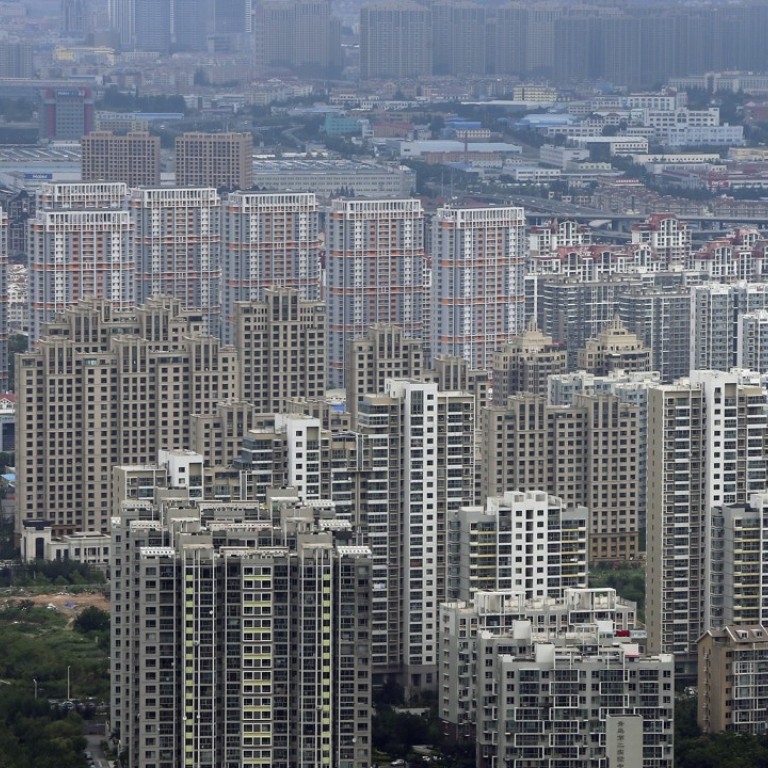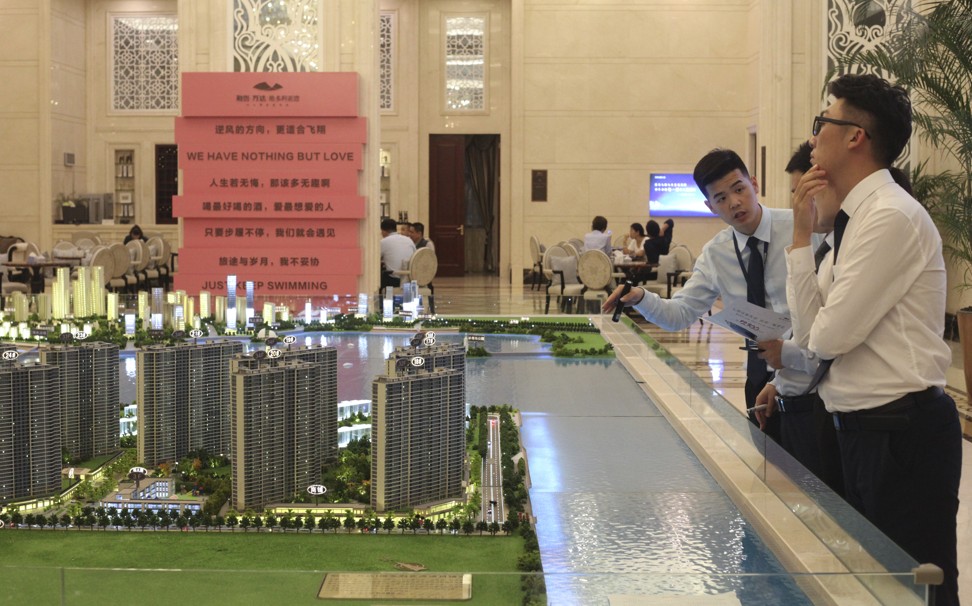
China’s property bull run in smaller cities may be tiring out as curbs to tame home prices bite
‘Developers and sellers are no longer setting aggressive prices and the market is starting to cool down,’ said Samuel Wong, research associate director at property agency Midland Realty.
The red-hot property bull run seen across China’s smaller cities may be tiring out, as government curbs intended to tame runaway prices rattle the housing sector, one of the economy’s most important drivers.
In second-tier cities, transaction volume of second-hand homes has plunged over the past two months. Frenetic new home sales are beginning to lose energy. And home prices have slid in some places, too.
The more than two dozen metropolises categorised as second-tier are some of China’s most prosperous towns. Smaller than megacities like Beijing and Shanghai, they are mostly provincial capitals located in the eastern coastal region.
Surging home prices in these cities have been a main force fuelling the fast expansion of China’s property industry over the past two years and boosting the country’s economic growth. But they also have caused distress among those who cannot afford to buy as well as worries of a property bubble, prompting the government to tighten its grip.
“Developers and sellers are no longer setting aggressive prices and the market is starting to cool down,” said Samuel Wong, research associate director at property agency Midland Realty.
The sell-through rate – comparing the units sold and the total units of a new development project, indicating its popularity – declined in 11 cities in August and 16 cities in September, according to statistics from consultancy China Real Estate Information Corp (CRIC).
Transaction volume of second-hand homes in 11 key cities monitored by real estate data provider Ke Research Institute tumbled 33 per cent in the third quarter of this year from the second quarter.
These suggest a shift of market sentiment is under way, even though official statistics indicate prices of new homes rose at the fastest pace in nearly two years in August across the country.
China’s property market has rapidly expanded since 2016, thanks to a government push to reduce unsold homes piling up as inventories and boost growth amid an economic downturn.
“Second-tier cities and smaller cities provided a lot of momentum in reducing inventories,” said Betty Wang, senior China economist at ANZ.

So far, local governments in second-tier cities have been trying to stop runaway prices by levelling up cooling measures one after another since early 2017, which are finally starting to kick in.
Qingdao, the eastern city on the coastline famous for the eponymous Tsingtao beer, is a case in point.
The government in April stepped up cooling measures to ban homeowners from reselling their property within five years of purchase, up from the previous two years, and restricted the number of homes local residents can buy to two from three.
The results are emerging after five months.
The sell-through rate dipped to 80 per cent in September from nearly 100 per cent in July, while second-hand home transactions plummeted 62 per cent quarter-to-quarter in the third quarter. Prices of second-hand homes have also dropped 6 per cent, according to Ke Research Institute.
“Many buyers have turned very cautious and adopted a wait-and-see attitude,” said Liu Zhao, manager of property agency Qfang.com’s local branch in Qingdao’s central business district.
Liu said the branch’s monthly revenue declined 40 per cent from half a year ago, with just four deals of second-hand homes executed last month, down from 12 in March.
The average price of second-hand homes in the city has jumped 45 per cent over a year to 19,776 yuan per square metre (US$267 per square foot) in September, according to housing information provider Anjuke. That’s a lot in a city where the average monthly salary is 5,309 yuan (US$773), according to official statistics.
“Home prices have risen so much that those who could afford a house have already bought one, and those didn’t buy won’t be able to afford to buy now anyway,” said Liu.
New homes, while still in high demand, have seen sales quiet down in the past few months.
Sun Lijun, a sales manager at Jade Bay, a seven-tower project in suburban Qingdao by China’s largest developer Country Garden, said cooling measures had dialled down the feverish competition to buy a new flat.
In early September, about 400 buyers entered the lottery system for one of the 272 flats in the project’s second phase, according to Sun. That compared with more than 1,000 buyers vying for the first phase of 400 flats launched in May.
Markets in other second-tier cities are showing similar signs of exhaustion.
In Nanjing, the capital of the eastern province of Jiangsu, sellers of second-hand homes are lowering their prices aggressively to stay competitive.
In May, Jun Wang put his three-bedroom flat in downtown on the market for 3 million yuan. He then dropped the prices to 2.8 million yuan.
Now, he is willing to take another “200,000 to 300,000 yuan haircut as long as the buyer can proceed with the deal soon.”
“In the beginning, I didn’t even bother meeting buyers who offered lower prices. But the market has turned bearish so suddenly and unexpectedly,” Wang said.
Some developers have dropped the traditional lottery system because of fewer buyers.
Xiamen, a port city across a strait from Taiwan and a market with some of the highest home prices among second-tier cities, has turned gloomy.
Prices of second-hand flat have generally dropped 5,000 to 8,000 yuan per square metre from their peak in late 2016 and early 2017. And six developers have launched price discounts for projects sold during the Mid-Autum and the Golden Week holiday season.
Overall, however, experts are split on which way home prices will move in China’s first- and second-tier cities going forward.
Wong of Midland Realty forecasts home prices will decline 10 to 15 per cent across the country by the first half of 2019, but Yang Kewei, vice general manager of CRIC, said prices are unlikely to drop significantly because of strong demand.
Any movement in the home prices will be a test to the government’s ability to manage the trillion-dollar industry that is also a key pillar of the economy.
“What the policymakers want is a stable home price instead of contracting home price, because they still want investment in the property sector but don’t want home prices to go skyrocketing,” said Wang of ANZ.
“It is a very tricky balance the government is trying to strike,” she said.



